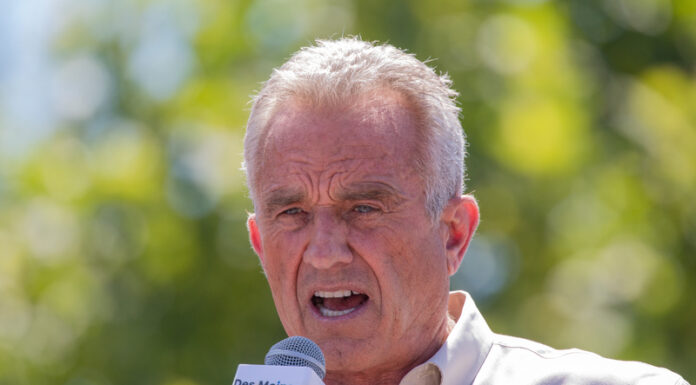Health and Human Services Secretary Robert F. Kennedy Jr. has proposed an unconventional approach to addressing the avian influenza outbreak affecting U.S. poultry farms: allow the virus to spread naturally through flocks rather than culling infected birds.
The controversial suggestion, made during a March 11, 2025, Fox News interview this week, has drawn intense criticism from veterinary scientists, government officials, and public health experts who warn that such a strategy could have devastating consequences for the poultry industry and public health.
“They should isolate them. You should let the disease go through them and identify the birds that survive, which are the birds that probably have a genetic inclination for immunity, and those should be the birds that we breed,” Kennedy said during the interview.
Kennedy argued that this approach would help identify birds with natural immunity to the virus, potentially preserving genetic resistance. However, experts have overwhelmingly rejected this idea, citing the extreme lethality of highly pathogenic avian influenza among poultry.
Since January 2022, over 1,600 virus outbreaks have been reported on U.S. farms, affecting more than 166 million birds. The current policy, enforced by the U.S. Department of Agriculture (USDA), requires farmers to cull entire flocks when the virus is detected – a practice Kennedy and USDA Secretary Brooke Rollins have suggested modifying.
The current strain of highly pathogenic avian influenza is exceptionally deadly for chickens, with mortality rates between 90% and 100% within 3-4 days of infection. According to poultry disease experts, this rapid progression leaves no time for the birds to develop antibodies that could confer resistance.
A poultry veterinarian with firsthand experience in bird flu outbreaks warned that letting the virus spread would be a disaster. Infected chickens and turkeys almost always die, and the process isn’t quick or clean—it’s an excruciating few days before nearly all of them succumb. The idea, the vet suggested, is not just unworkable but deeply inhumane.
Beyond animal welfare concerns, experts fear that letting the virus spread unchecked would significantly increase the risk of mutation into more dangerous forms. Each infected bird allows the virus to evolve, potentially developing traits that could make it more transmissible to humans or other animals.
The current outbreak has already shown concerning patterns of transmission. While previous outbreaks were effectively controlled through culling and containment since the 1980s, the current circulating strain has found new ways to spread to poultry farms, challenging existing biosecurity measures.
Under Kennedy’s proposed strategy, farm workers would face exceptionally high risk. Greater exposure to infected birds would increase the chances of human infection, potentially setting the stage for a pandemic strain.
Infectious disease specialists monitoring the situation warn that a no-cull policy would expose more farm workers to sick chickens, significantly increasing the risk of a pandemic strain emerging.
Kennedy has also expressed concerns about vaccination as an alternative strategy. In separate comments, he warned against vaccinating poultry during the ongoing outbreak, citing the risks of “leaky vaccines” that he claimed could turn flocks into “mutation factories” for the virus.
The economic impact of the bird flu outbreak has already been substantial, with egg prices more than doubling due to the culling of infected flocks. Kennedy’s proposal comes when only 10 states have fully implemented the current strategy of culling infected flocks and enforcing biosecurity measures.
Researchers and public health officials are working on multiple fronts to address the outbreak. Scientists are studying how the virus is spreading and improving biosecurity measures. They are also exploring genetic variations in poultry immune responses to develop more effective vaccines, though Kennedy has expressed skepticism about this approach.
Kennedy also suggested that wild birds may have natural immunity to the virus. Still, the Centers for Disease Control and Prevention (CDC) has documented that the H5N1 virus has killed various wild species.
While the CDC currently reports that human risk from the outbreak remains low, health officials emphasize the need for continued vigilance and effective containment strategies to prevent potential spillover to humans.
Kennedy’s jurisdiction as HHS Secretary does not extend to agricultural policy, which falls under the USDA’s authority. The USDA has not indicated any plans to change its current culling requirements in response to Kennedy’s suggestions.
Experts continue to advocate for the existing strategy of culling infected flocks, arguing it remains the most effective and responsible approach to containing the bird flu outbreak while protecting both animal welfare and public health.








